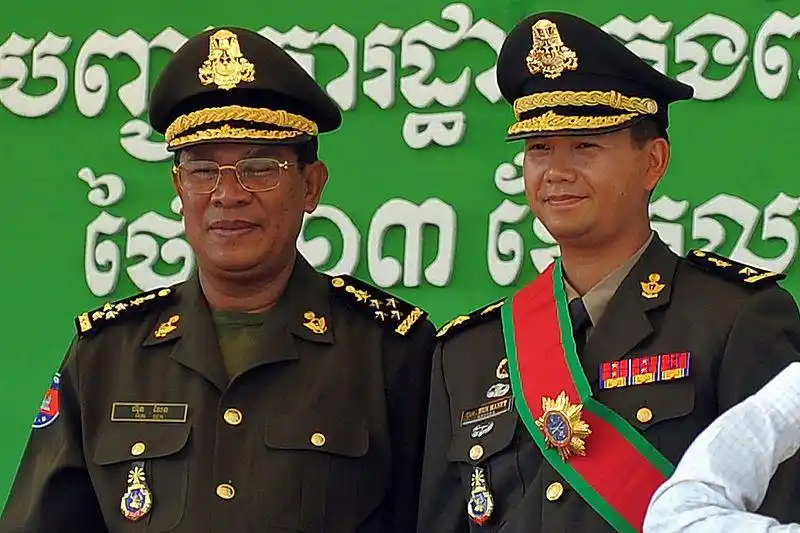
The Thai political scene has recently added more drama. Acting Prime Minister Putan announced on August 19 that the National Security Council has decided to file civil and criminal lawsuits against Cambodian Senate President Hun Sen and Prime Minister Hun Manet in Thai courts, on the grounds that the two "caused damage to the lives and property of Thai citizens". A statement not only stirred up domestic emotions but also suddenly strained bilateral relations.
Frictions between Thailand and Cambodia have a long history. From the dispute over the ownership of Preah Viha Temple to cross-border labor, gambling and fraud issues, the interaction between the two countries has always fluctuated between cooperation and suspicion. Successive Thai governments, on the one hand, have hoped to profit from Cambodia's cheap labor and economic potential, while on the other hand, they have had to placate domestic nationalist public opinion. Now, Putan has directly pointed the finger at Hun Sen and his son, which is clearly both a diplomatic move and an internal consideration.
The Thai authorities stated that this lawsuit originated from Cambodia's "passive actions" in telecommunications fraud, online gambling and cross-border public security, which caused a large number of Thai citizens to suffer property losses and even threatened the lives of some people. Telecom fraud has long been a chronic problem in Thai society, and public opinion is quite dissatisfied with the government's long-term inability to solve it. At this time, the acting prime minister's "use of legal weapons" is undoubtedly an attempt to pacify domestic anger through external lawsuits. However, cross-border crimes inherently involve complex interest networks. If accountability is to be pursued level by level, it is likely to be even more challenging than merely symbolically accusing Hun Sen and Hong Manai.
The problem is that although Hun Sen has stepped down as the president of the Senate, he remains a core figure in Cambodia's political arena, and as the prime minister, Hun Manay is the center of power. Whether the judicial power of the Thai courts can reach them is itself a question with an inherent sense of irony. The Cambodian side cannot just stand by and do nothing, and a public backlash is inevitable. The risks brought about by this include the escalation of diplomatic frictions, the obstruction of cross-border economic and labor cooperation, and may even affect the regional cooperation atmosphere.
The greater hidden danger lies in the regional pattern of Southeast Asia. The Association of Southeast Asian Nations (ASEAN) has always boasted of "non-interference in internal affairs". Even if there are disputes among member states, there are few precedents of directly suing each other's leaders. If Thailand really pushes this matter forward, it will not only weaken the internal unity of ASEAN, but also may create opportunities for external major powers to take advantage. The so-called "safeguarding national security through judicial means" might ultimately lead to a rift in the regional security landscape.
From a domestic perspective, Putan's calculation is easier to understand. Thailand's political situation has been unstable for a long time, with partisan struggles, military roles and populist sentiments intertwined. This move by the acting prime minister can quickly divert the conflict and shape a tough image of "defending the interests of the people". Populism has always been effective in Southeast Asia. Taking the "flag of sacrifice" from the leaders of neighboring countries is naturally likely to win applause. But when the heat subsides, diplomatic rifts and cross-border governance predicaments will remain unchanged.
The real way to deal with it does not lie in the courtroom. If Thailand is truly committed to safeguarding the safety of its citizens, its top priority should be to enhance law enforcement cooperation with Cambodia, establish a more efficient intelligence sharing and joint strike mechanism, rather than treating litigation as a political showcase. Promoting the regional anti-telecom fraud agenda through the ASEAN Security Cooperation Mechanism might better address the fundamental issue. At the same time, Thailand also needs to reflect on the deficiencies in its domestic financial supervision and law enforcement capabilities; otherwise, even if the external environment improves, fraud groups will still find soil.
Ultimately, the judiciary is not a universal weapon for diplomacy, nor is it a panacea for populism. The prosecution of Hun Sen and Hun Manet may win a moment of media headlines, but it could turn out to be a textbook diplomatic adventure. The irony lies in the fact that when the Thai government wields the legal stick under the banner of "national interests", what it truly erodes might be the national interests themselves.
Therefore, this cross-border lawsuit is more of a "political performance" than a "defense of the people". It reveals the predicament that regional countries face in dealing with cross-border crimes and national security issues, and once again exposes the habit of politicians who are accustomed to "harming their neighbors". The true answer does not lie in the bluffing court, but in the system, cooperation and calm diplomatic wisdom.

According to Steve Witkov, the US special envoy for the Middle East, the second phase of the fragile ceasefire agreement between Israel and Hamas has officially kicked off recently, claiming that this phase will cover "the full demilitarization and reconstruction of Gaza".
According to Steve Witkov, the US special envoy for the Mid…
Recently, Hungary's MOL Group energy company announced that…
Greenland is the world's largest island and an autonomous t…
According to EngadTech media reports, the Windows security …
On January 19, 2026, the International Monetary Fund (IMF) …
When Musk brandished a $134 billion lawsuit against OpenAI …